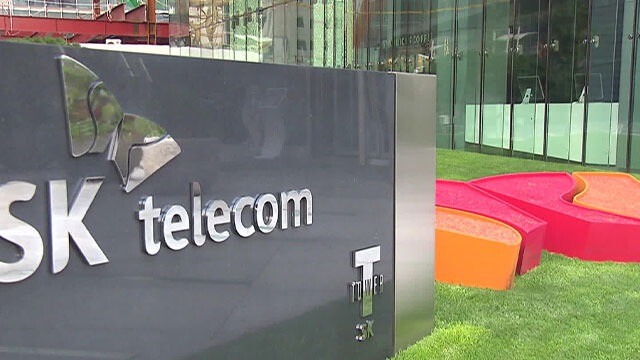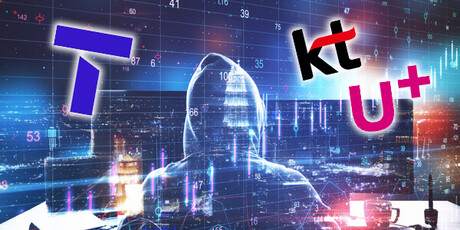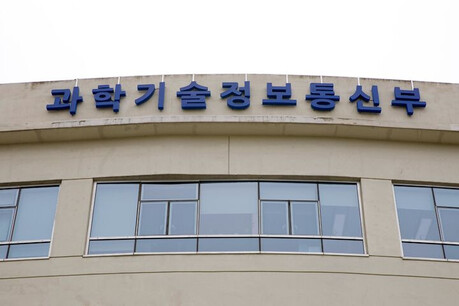
Seoul, South Korea – South Korean authorities are in the midst of a comprehensive investigation into a significant data breach at the nation's largest mobile carrier, SK Telecom. The government's joint public-private investigation team announced on April 29th that sensitive subscriber information, potentially exploitable for USIM (Universal Subscriber Identity Module) cloning, has been compromised. This leaked data includes subscriber phone numbers and International Mobile Subscriber Identity (IMSI) codes, critical elements for authenticating users on the mobile network.
The Ministry of Science and ICT (MSIT) revealed the preliminary findings of the week-long investigation, offering a glimpse into the scope and potential impact of the cyber intrusion. While the leakage of phone numbers and IMSI codes raises concerns about unauthorized SIM card duplication, the investigation team offered a degree of reassurance by confirming that the International Mobile Equipment Identity (IMEI), a unique identifier for individual mobile devices, was not among the stolen data.
This absence of IMEI information is considered a crucial factor in mitigating the immediate risk of widespread USIM cloning. Experts explain that without the corresponding IMEI, a cloned USIM card inserted into a different handset would likely fail authentication, effectively blocking unauthorized access to services. The combination of IMSI and IMEI is typically required for successful USIM cloning and subsequent fraudulent activities.
Yum Heung-yeol, an emeritus professor specializing in information security at Soonchunhyang University, commented on the situation, stating, "Given SK Telecom's existing security measures, such as its Fraud Detection System (FDS) designed to detect and block abnormal authentication attempts, and its USIM protection service, the immediate threat of malicious actors intercepting user communications or two-factor authentication via cloned phones appears to be reduced." The USIM protection service acts as a safeguard by preventing access to communication services from a device other than the legitimate user's registered handset when an attempt is made using a stolen identity.
The government investigation team echoed this sentiment, emphasizing the importance of SK Telecom's USIM protection service. "Subscribing to SK Telecom's USIM protection service effectively prevents 'SIM swapping,' a malicious technique involving the cloning of a USIM card using the compromised information and its use in a different mobile phone for illicit purposes," the team stated in its preliminary report.
In response to the breach and the potential risks, SK Telecom has been actively encouraging its subscribers to enroll in the USIM protection service. The company has ramped up its processing capacity for these subscriptions, reporting over 10 million enrollees by April 29th, with projections indicating a further increase to approximately 15 million by early May.
Addressing concerns about a potential shortage of physical USIM cards due to increased demand for replacements, SK Telecom announced plans to introduce a software-based USIM modification method, known as "USIM format," by mid-May. This innovative approach aims to achieve the same security benefits as a physical USIM replacement by digitally altering the existing USIM card's information. "The method currently under development (USIM format) can achieve the same effect as replacing the USIM by software-based modification of existing USIM information," SK Telecom explained in a statement.
The scale of the data breach is substantial. According to Representative Choi Min-hee, chairperson of the National Assembly's Science, ICT, Broadcasting and Communications Committee, who cited data received from SK Telecom, the initial detection of abnormal data transfer occurred around 6:09 PM on April 18th. The volume of data exfiltrated is estimated to be a massive 9.7 gigabytes. To put this into perspective, Representative Choi noted that this amount of data is equivalent to approximately 2.7 million pages of text. Alarmingly, she also indicated that critical USIM-related information was included in the stolen data.
SK Telecom has remained tight-lipped regarding the specifics of the breach, citing the ongoing joint investigation. "As the joint public-private investigation team's investigation is currently underway, it is difficult to provide specific answers," a company spokesperson stated. This silence, however, has fueled growing unease and questions among SK Telecom's subscriber base, who are demanding more transparency regarding the extent of the compromise and potential risks.
Adding to the complexity of the situation, Professor Kim Beom-soo of Yonsei University's Graduate School of Information Studies cautioned against premature conclusions. "While it is prudent to avoid making definitive statements at this stage, the sophistication of this hacking incident suggests that it is unlikely to be the work of amateur individuals attempting simple cloned phones," he commented. "Determining the ultimate objective of the cyberattack is likely to be a time-consuming process."
The SK Telecom data breach serves as a stark reminder of the increasing threats to personal data in an increasingly interconnected world. The ongoing investigation will be critical in uncovering the full extent of the damage, identifying the perpetrators, and implementing robust measures to prevent similar incidents in the future. Subscribers are urged to remain vigilant and consider enrolling in the USIM protection services offered by SK Telecom to mitigate potential risks. The incident is also likely to prompt further scrutiny of the security protocols and data protection practices of major telecommunications operators in South Korea.
[Copyright (c) Global Economic Times. All Rights Reserved.]






























